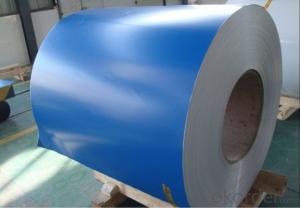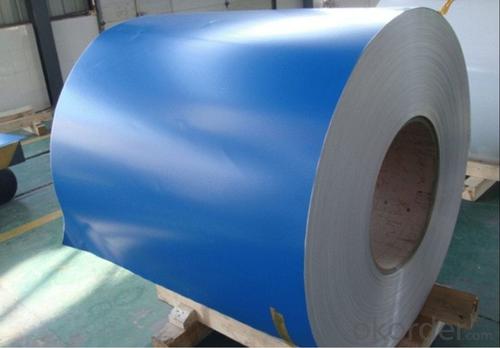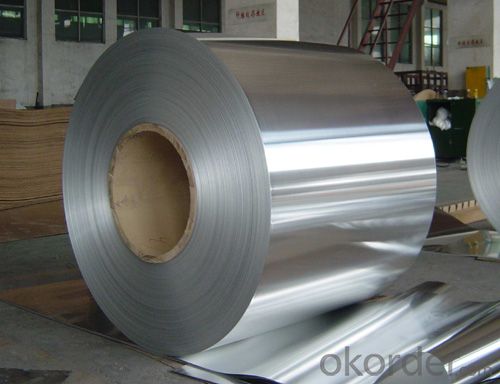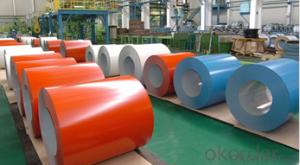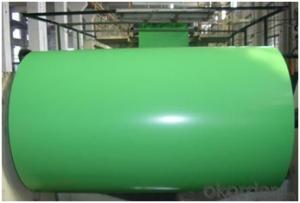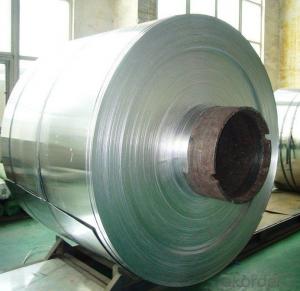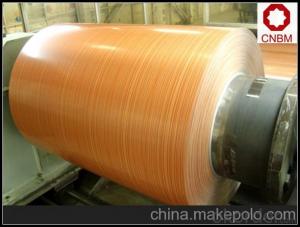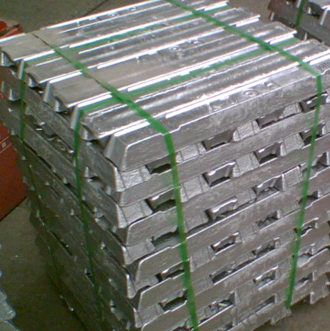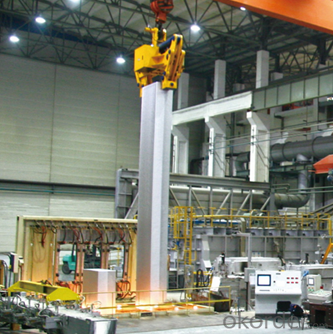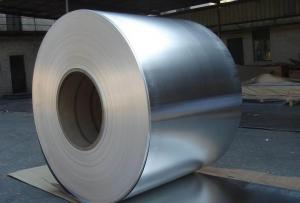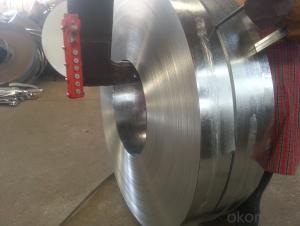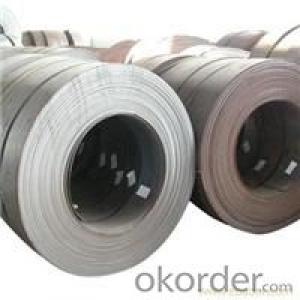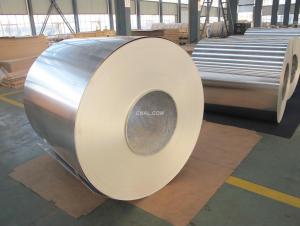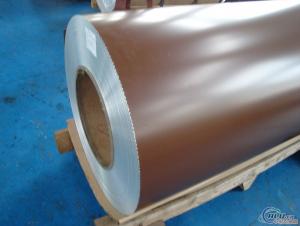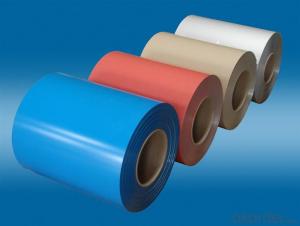G8 Aluminum Coil - Hot Sale Aluminum Coils
- Loading Port:
- Shanghai
- Payment Terms:
- TT OR LC
- Min Order Qty:
- 5 m.t.
- Supply Capability:
- 100000 m.t./month
OKorder Service Pledge
OKorder Financial Service
You Might Also Like
1.Structure of Aluminum coils in Hot Sale :
Mill Finished Aluminum Coil is designed for many field such as electronics, instruments, lighting decoration, packing industry, and house decoration, curtain wall, honeycomb-core panel, sandwich panel, aluminum composite panel, aluminum composite pipe etc.. Mill finished aluminum coil is hard and everlasting under the blazing sun. You can choose the alloys as your habitation and we will do our best to meet your requests.
2.Main Features of the Aluminum coils in Hot Sale :
• Smooth surface
• High manufacturing accuracy
• High strength of extension and yield
• Well packaged
• No marks, no scratch, no excessive oil
3. Aluminum coils in Hot Sale
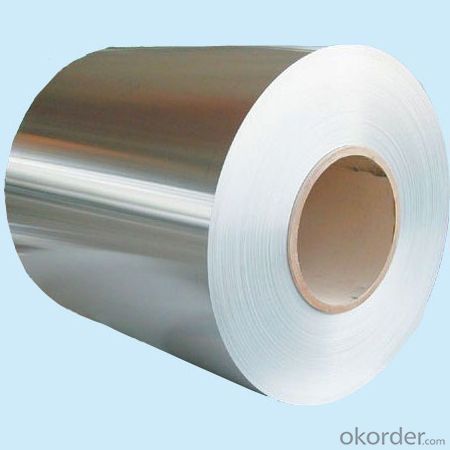
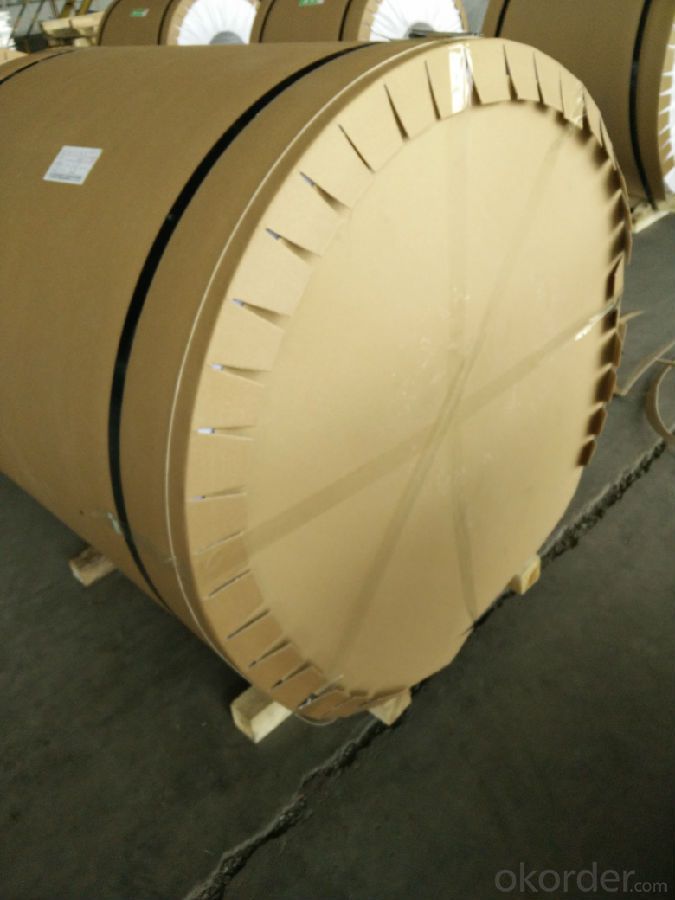
Alloy: | AA1050, 1060, 1070, 1100, 3003, 3004, 3005, 3105, 5052, 5083, 5754, 8011, 8006 |
Temper: | H14, H16, H18, H22, H24, H26, H32, O/F |
Thickness: | 0.2-100mm |
Width: | 30mm-1700mm |
4. Production of Aluminum coils in Hot Sale
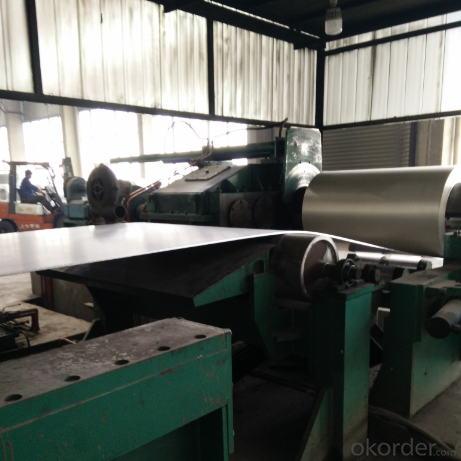
5.FAQ
We have organized several common questions for our clients,may help you sincerely:
① How about your company?
A world class manufacturer & supplier of aluminum coil and alloy blanks. Aluminum production base is comprised of 18 aluminum annealers, 10 coil and foil mills, 4 continuous production lines, 2 hot rolling production line and 3 prepainted lines.
Export 5000 tons per month to Asia, America and Middle East. Always do the best for our clients.
②Can you guarantee the quality of the products?
We are responsible for the quality of materials to get a long-term cooperation with clients in a reasonable period of time and we are glad to arrange and coordinate any third party inspection for you.
③What is the delivery time after purchase?
35 day after receiving client’s deposit or correct LC
- Q: Can aluminum coils be customized in terms of thickness?
- Yes, aluminum coils can be customized in terms of thickness. The thickness of aluminum coils can be modified through various manufacturing processes to meet specific requirements and applications.
- Q: How do aluminum coils perform in extreme temperature conditions?
- Aluminum coils generally perform well in extreme temperature conditions due to their high thermal conductivity and low thermal expansion. They can efficiently transfer heat and are resistant to warping or cracking, making them suitable for various applications in extreme temperatures.
- Q: What happened to the aluminum coil coming out of the annealing furnace?
- There is oil on the aluminum coil and the annealing time is too long.
- Q: How are aluminum coils used in the production of signage and displays?
- Due to their versatility, durability, and cost-effectiveness, aluminum coils find extensive use in the manufacturing of signage and displays. These coils are typically composed of high-quality aluminum alloy, which provides excellent strength and resistance against corrosion. To achieve the desired thickness and shape, the production process starts by unwinding the aluminum coils and passing them through a series of rollers. This process, known as coil coating or pre-painting, allows for the application of various finishes and coatings onto the aluminum's surface. The type of coating used, such as polyester, polyurethane, fluorocarbon, or acrylic, depends on the specific requirements of the signage or display. After the coating process, the aluminum coils can be further processed into different forms, including flat sheets, strips, or custom shapes based on the design specifications. Aluminum's versatility enables easy fabrication and customization, which makes it a popular choice among signage and display manufacturers. Aluminum coils are widely employed in various signage applications, such as billboards, outdoor advertising panels, trade show displays, store signage, and architectural signage. The lightweight nature of aluminum simplifies transportation and installation, reducing production and installation costs. Furthermore, the durability of aluminum ensures that signage and displays made from aluminum coils can withstand harsh weather conditions, UV radiation, and other environmental factors, making them suitable for both indoor and outdoor applications. Aluminum's resistance to corrosion also contributes to the long-lasting quality of the signage, allowing it to maintain its appearance and functionality over time. Apart from its physical properties, the aesthetic appeal of aluminum is another reason for its extensive use in signage and displays. The smooth and reflective surface of the metal provides an attractive finish that enhances the visual impact of the signage, effectively capturing attention and conveying messages. In conclusion, aluminum coils are essential in the production of signage and displays due to their versatility, durability, cost-effectiveness, and aesthetic appeal. The ease of customization, combined with the resistance to corrosion and harsh environmental conditions, makes aluminum an ideal material for creating visually striking and long-lasting signage and display solutions.
- Q: I heard that one pound of aluminum pop tabs are worth more then a pound of aluminum pop cans. Is this true? Thank you.
- The cans also have paint on them so a pound of cans is a pound of aluminum and paint. A pound of pull tabs is all aluminum.
- Q: How does the gauge of aluminum coils affect their performance?
- The gauge of aluminum coils directly influences their performance. Thicker gauge coils are more durable and resistant to physical damage, making them suitable for heavy-duty applications that require high strength and durability. On the other hand, thinner gauge coils are lighter and more flexible, making them more suitable for applications that require flexibility and ease of bending. Additionally, the gauge also affects the thermal conductivity and electrical resistance of the coils, with thinner gauges offering higher conductivity. Therefore, the gauge of aluminum coils plays a crucial role in determining their performance characteristics and suitability for specific applications.
- Q: Im doing an assignment for science and i need to know the nuclear charge of Aluminium?and also is there a difference between Aluminium and Aluminum or can it just be spelt differently?
- Aluminium is the European spelling Aluminum is the American spelling...just like colour and color. Aluminium ion usually has a 3+ charge
- Q: Are aluminum coils suitable for architectural applications?
- Aluminum coils are indeed suitable for architectural purposes. The construction industry often relies on aluminum, a highly adaptable and long-lasting material, for a variety of architectural projects. The use of aluminum coils offers numerous benefits in this field, including their light weight, resistance to corrosion, and ease of shaping into desired forms and sizes. These coils find application in roofing, cladding, facades, gutters, and more architectural areas. Moreover, architects and designers have the option to coat aluminum coils with different finishes, providing a wide array of aesthetic possibilities. In conclusion, choosing aluminum coils for architectural projects is an excellent decision due to their robustness, endurance, and flexibility.
- Q: How do aluminum coils perform in high-pressure applications?
- Aluminum coils perform well in high-pressure applications due to their excellent strength-to-weight ratio and corrosion resistance. They are capable of withstanding high pressures without deformation or failure, making them a reliable choice for various industrial and HVAC systems.
- Q: Are there any limitations to the maximum coil length of aluminum coils?
- Yes, there are limitations to the maximum coil length of aluminum coils. The maximum coil length depends on various factors such as the thickness and width of the aluminum coil, the strength and tensile properties of the aluminum alloy, the equipment used for coil processing, and the intended application of the coil. One limitation is the strength and ductility of the aluminum alloy being used. Aluminum alloys with higher strength and lower ductility may have limitations on the maximum coil length due to the risk of coil breakage or deformation during processing or handling. Another limitation is the equipment used for coil processing. The maximum coil length is often determined by the size and capabilities of the equipment used for slitting, cutting, or forming the coils. If the equipment has a limited capacity or is not designed for longer coils, it may not be able to handle or process longer lengths effectively. The intended application of the coil can also impose limitations on the maximum coil length. For example, if the coil is intended for transportation purposes, such as in the automotive industry, there may be restrictions on the maximum coil length based on the size and weight limitations of the vehicles. Additionally, logistical factors such as transportation and storage can also impose limitations on the maximum coil length. Longer coils may be more difficult to handle, transport, and store, which can increase the risk of damage or pose challenges in terms of logistics and space requirements. Therefore, while there is no specific universal limit to the maximum coil length of aluminum coils, it is essential to consider various factors such as alloy properties, equipment capabilities, application requirements, and logistical considerations to determine the practical limitations of coil length for a specific situation.
Send your message to us
G8 Aluminum Coil - Hot Sale Aluminum Coils
- Loading Port:
- Shanghai
- Payment Terms:
- TT OR LC
- Min Order Qty:
- 5 m.t.
- Supply Capability:
- 100000 m.t./month
OKorder Service Pledge
OKorder Financial Service
Similar products
Hot products
Hot Searches
Related keywords
